Syria war: UN alarm at escalation of hostilities in Idlib
- Published
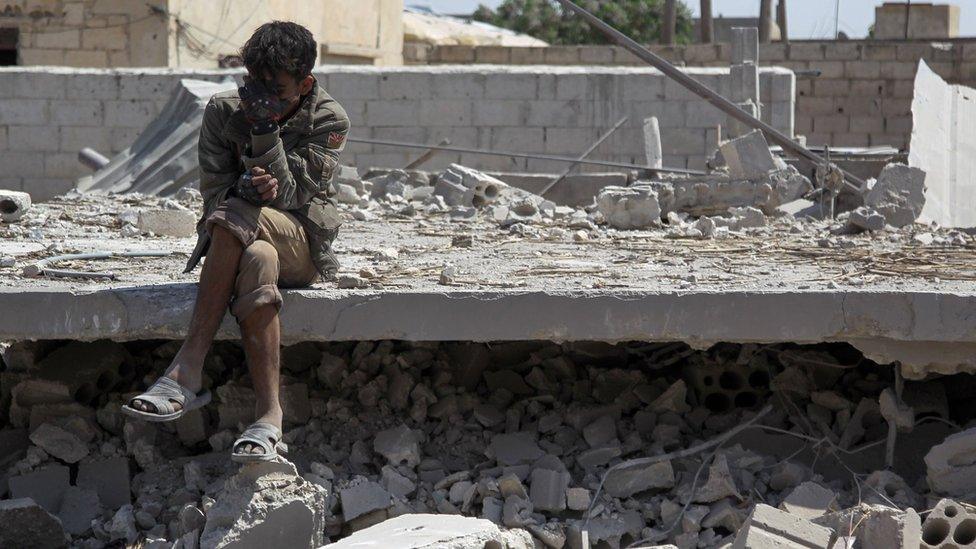
The UN said ground-based attacks and air strikes had targeted civilian infrastructure
The UN has called for an urgent de-escalation in north-western Syria, after fighting between government and opposition forces reportedly left dozens of civilians dead or injured.
Secretary General António Guterres urged all parties to recommit to a truce covering opposition-held parts of Idlib, Aleppo and Hama provinces.
Rescuers said at least 20 civilians were killed in air strikes on Tuesday.
On Monday, two medical facilities were reportedly targeted by warplanes.
Idlib, northern Hama and western Aleppo make up the last opposition stronghold remaining in Syria after eight years of civil war.
The region is covered by truce brokered in September by Russia, which backs President Bashar al-Assad, and Turkey, which supports the opposition, that has spared the 2.7 million civilians living there from a major government offensive.
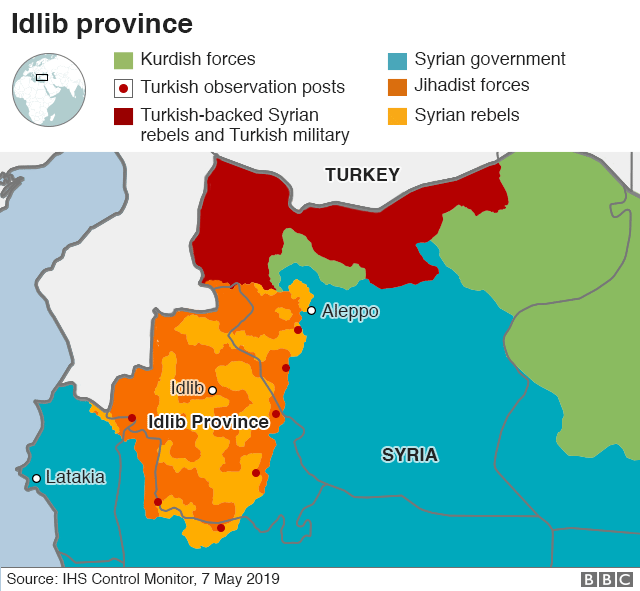

A "demilitarised buffer zone" was established along the front line to separate opposition and government forces. Mainstream rebels were required to pull their heavy weapons out of the zone, and jihadists were told to withdraw altogether.
But a takeover of the enclave in January by the jihadist alliance Hayat Tahrir al-Sham, which was known as al-Nusra Front until it broke off formal ties with al-Qaeda in 2016, put the truce deal at risk and was followed by increased hostilities.
Government and Russian forces intensified their air and artillery strikes on opposition-held areas of southern Idlib and northern Hama last month, saying they were attacking jihadist positions in response to repeated truce violations.
What's the latest?
The Syria Civil Defence, whose rescue workers are commonly known as the White Helmets, reported that Russian and Syrian government air strikes killed at least 20 civilians in northern Hama and southern Idlib on Tuesday, external.
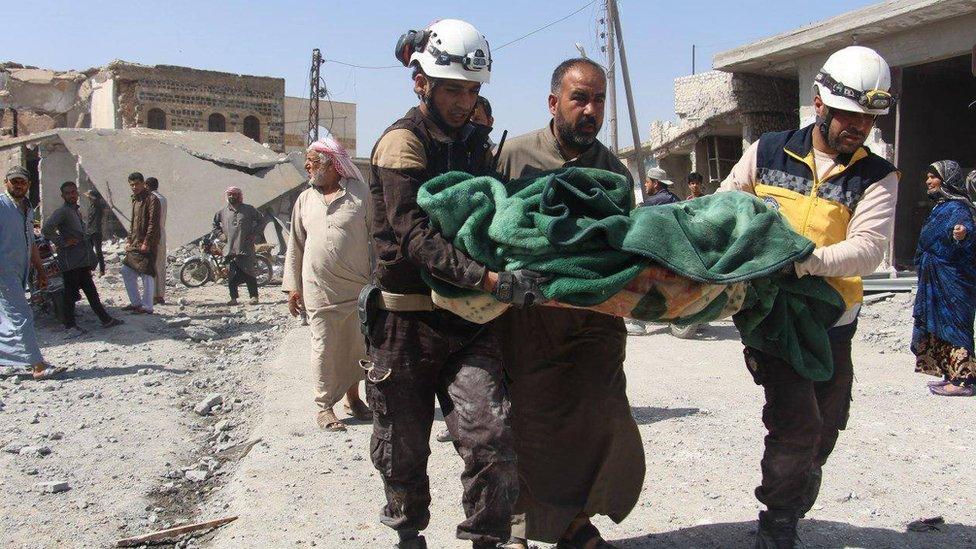
The Syria Civil Defence said five people were killed in the village of Ras al-Ain
Six people died when homes were bombed in the town of Kafr Zeita, while five others died in Ras al-Ain when the village's market was hit by rockets, it said.
On Monday, government troops and allied militiamen started to advance on the ground and reportedly captured opposition-held villages in northern Hama. Opposition groups carried out counter-attacks in neighbouring Latakia province.
The Office of the UN High Commissioner for Human Rights (OHCHR) said on Tuesday morning that at least 27 civilians had been killed and 31 injured since 29 April, including many women and children.
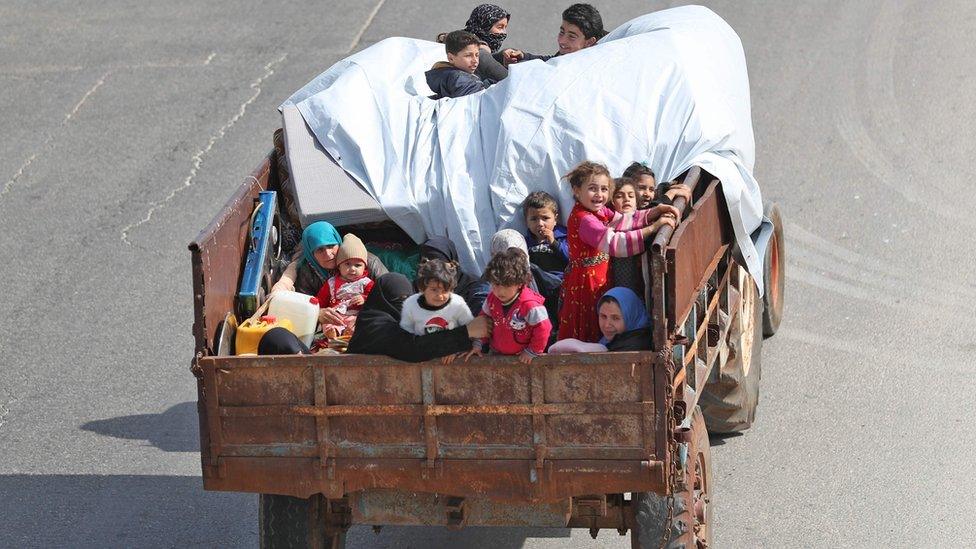
More than 150,000 people have been newly displaced by the increased hostilities
The Syrian Observatory for Human Rights, a UK-based monitoring group, later put the civilian death toll at 77. It said 49 rebels and jihadists, as well as 36 pro-government fighters, had also been killed.
The violence has also displaced more than 152,000 people in the past week alone, according to the UN Office for the Co-ordination of Humanitarian Affairs.
What else has been hit?
OHCHR spokeswoman Ravina Shamdasani said a series of ground-based attacks and air strikes had been carried out against civilian infrastructure, such as schools and hospitals, causing severe damage.
"We call on all parties to the conflict to respect the international humanitarian law principles of distinction, precaution and proportionality and to ensure the full protection of civilian objects," she told reporters in Geneva.
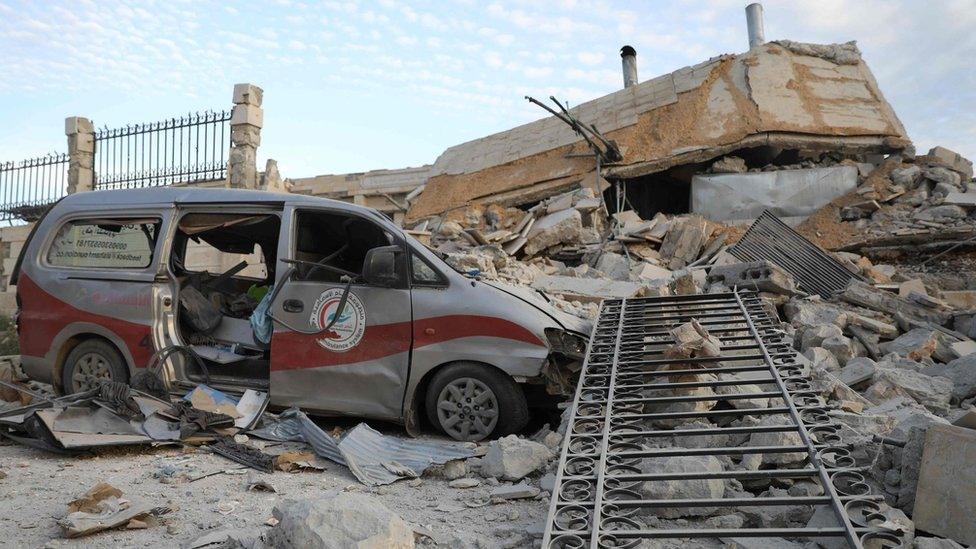
A medical facility in Kafranbel was among those destroyed in reported air strikes
On Monday, the Union of Medical Care and Relief Organizations (UOSSM) said the Al-Amal Orthopaedic Surgical Centre in Kansafra and the Al-Zerba Primary Health Care Centre were damaged by air strikes and put out of service. No injuries or casualties were reported following the attacks.
The charity said that brought to 12 the number of medical facilities bombed since 28 April. They had been providing essential services to more than 100,000 people.
Another three hospitals were attacked on Sunday despite their co-ordinates having been shared with the warring parties through a UN deconfliction mechanism.
Nine schools have also reportedly been hit since 30 April, and schools in many areas have been closed until further notice.
French President Emmanuel Macron tweeted, external: "Syria's humanitarian situation is critical, and no military option is acceptable. We call for an end to this violence, and support UN efforts to find a political solution."
- Published24 April 2019
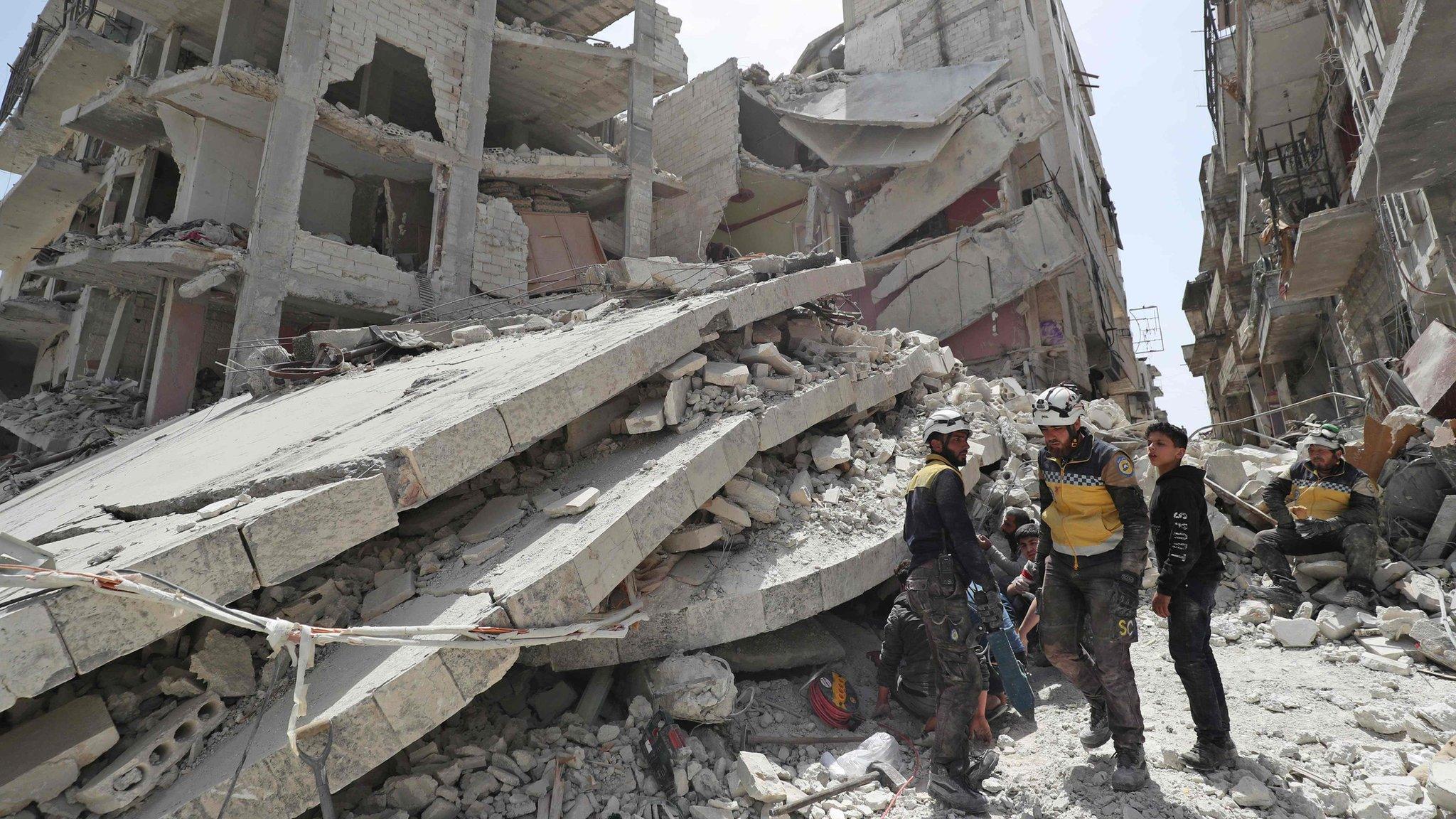
- Published26 February 2019
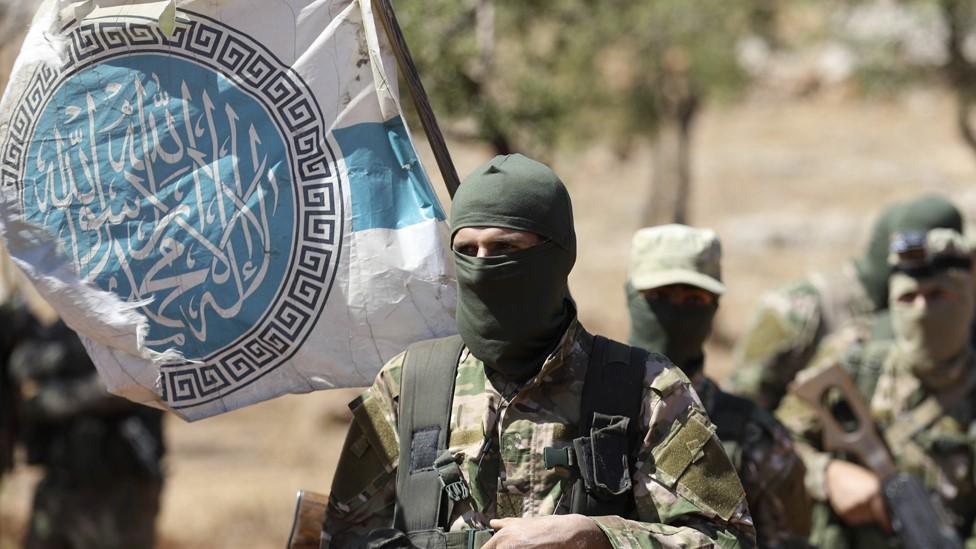
- Published2 May 2023
